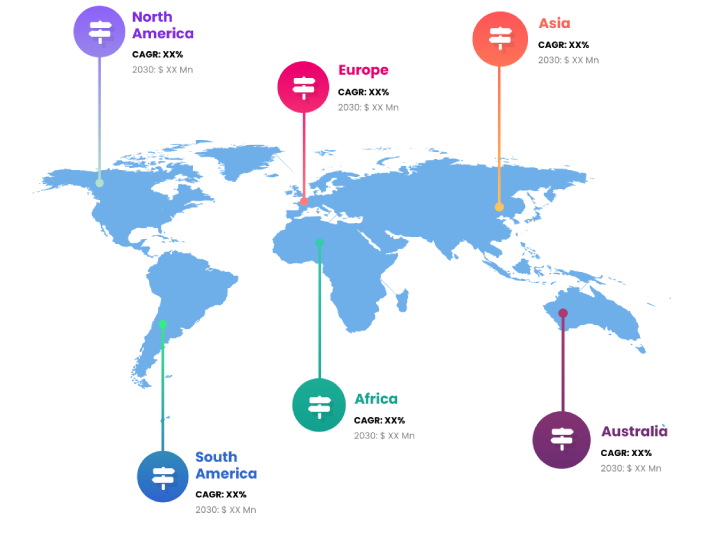
To guarantee the safety and quality of the food we eat, the food safety testing market is essential. This industry plays a crucial role in safeguarding public health thanks to its capacity to identify and remove dangerous pollutants, diseases, and poisons from food products. The food safety testing industry is expected to expand rapidly because of increased public concern over food contamination and food-borne illnesses and the development of more precise and reliable testing methods. The food safety testing market is extremely diverse, with submarkets for different food types, technologies, and regions. Culture-based and immunoassay-based procedures are examples of more conventional approaches, whereas DNA-based and fast testing are examples of more cutting-edge technologies used in this field. The food safety testing market is booming, and it's only going to get bigger as the food sector grows and more people become concerned about food poisoning. Key to its longevity and our continuous confidence in the food we consume is the creation of novel, low-cost testing methods.
The significant global expansion of R&D efforts in both commercial labs and publicly financed research institutions is expected to pave the way for new developments and more reliable food safety testing methods during the next few years. Furthermore, as emerging food fads such as 'clean label,' 'free from,' and others continue to garner media attention, food safety testing methods are expected to evolve to accommodate these developments. The worldwide food safety testing market is anticipated to expand at a rapid rate over the forecast period as food safety remains a top priority for governments and consumers alike. These elements, together with strict laws and legislations pertaining to food safety, should help propel the worldwide food safety testing market to a value of US$ 39.8 Bn by the end of 2030. Stakeholders in the food and beverage industry's supply chain are under a lot of pressure to guarantee that their products are safe, healthy, and clean for human consumption. This has led analysts to predict rapid growth in the food safety testing market over the forecast time frame.
The food safety testing business is affected by widespread fraud in the food sector, including falsification and adulteration for financial gain. Foodborne sickness is brought on by eating tainted food, which may also contain radioactive and harmful substances. This is a potentially fatal condition. Reusing animal byproducts, selling items past their "use by" dates, and employing unsafe food handling practises are all examples of prevalent methods of food fraud. Food Standards Agency, European Food Safety Authority, Food Safety and Standards Authority of India, and the Canadian Food Inspection Agency are among the foremost food safety organisations working to detect and mitigate such intentional actions. For example, the European Food Safety Authority has built food supply traceability systems to monitor the flow of food and identify any instances of fraud. One of the EU's suggested action IT tools is the Rapid Alert System for Food and Feed (RASFF), which provides instantaneous warning and allows member states to prohibit sales of products. The Food and Drug Administration is responsible for fish safety, the National Oceanic and Atmospheric Administration (NOAA) manages ocean fisheries, and the Department of Agriculture handles marketing. These groups keep tabs on merchandise to foil fraud schemes that shortchange fisherman and shoppers. The demand for food safety testing services is anticipated to increase globally as a result of the increasing prevalence of anti-food fraud legislation.
The U.S. market for food safety testing is very competitive because of the abundance of reliable manufacturers and service providers. In addition, there has been significant market consolidation in food safety testing recently, and this trend is expected to continue as food safety testing gains popularity and technology improves. Competition among food manufacturers has been intense as the global food market has expanded. Adding formalin as a preservative to fish and meat, for instance, keeps the product fresh and lengthens its shelf life. Deliberately altering food poses health hazards and has repercussions for consumers, businesses, and the economy.
The increased regulatory oversight and media attention that followed several high-profile recalls—such as the recall of over a half billion fresh eggs from Wright County Egg and Hillandale Farms and the intentional shipment of Salmonella-contaminated peanut products by the Peanut Corporation of America—are all likely contributing factors. While the safety of the public's health is the primary concern, food recalls also have serious financial consequences. An estimated $10 million in direct costs, not including brand harm and missed sales, is the average cost of a recall to a food manufacturer, as reported by a joint industry research conducted by the Food Marketing Institute and the Grocery Manufacturers Association. Conagra Brands, Inc. of Russellville, Arkansas recalled around 119,581 pounds of frozen beef products due to misbranding and undisclosed allergens, as reported by the Food Safety and Inspection Service (FSIS) of the United States Department of Agriculture. The product contains egg, which is not declared on the label despite being a common allergen.
There is a higher danger of contamination because the food business in developing nations is still extremely fragmented and controlled by tiny and unorganised firms who may not have implemented proper food testing practises. The strength and efficiency of the agency responsible for enforcing food control regulations at each tier of government is essential to the system's overall success. This would mean that customers are not equally protected across the country, and it could be difficult to gauge the success of interventions by federal, state, or municipal agencies. Proper enforcement mechanisms, coordination between market parties, and a supporting infrastructure are necessary for testing food and beverage items such packaged foods, dairy products, beverages, and meat products. However, many nations in the group of developing economies lack these elements, which limits the scope of food safety testing there.
Report Coverage
Global Food Safety Testing research report categorizes the market for global based on various segments and regions, forecasts revenue growth, and analyzes trends in each submarket. Global Food Safety Testing report analyses the key growth drivers, opportunities, and challenges influencing the global market. Recent market developments and Food Safety Testing competitive strategies such as expansion, product launch and development, partnership, merger, and acquisition have been included to draw the competitive landscape in the market. The report strategically identifies and profiles the key Food Safety Testing market players and analyses their core competencies in each global market sub-segments.
| REPORT ATTRIBUTES | DETAILS |
|---|---|
| Study Period | 2017-2030 |
| Base Year | 2022 |
| Forecast Period | 2022-2030 |
| Historical Period | 2017-2021 |
| Unit | Value (USD Billion) |
| Key Companies Profiled | AsureQuality Ltd, Intertek Group plc, Eurofins Scientific, Thermo Fisher Scientific, Inc., TUV SUD AG, DNV AS, Bio-Rad Laboratories, ALS Limited, SGS SA, Bureau Veritas SA |
| Segments Covered | • By Product |
| Customization Scope | Free report customization (equivalent to up to 3 analyst working days) with purchase. Addition or alteration to country, regional & segment scope |
Key Points Covered in the Report
- Market Revenue of Food Safety Testing Market from 2021 to 2030.
- Market Forecast for Food Safety Testing Market from 2021 to 2030.
- Regional Market Share and Revenue from 2021 to 2030.
- Country Market share within region from 2021 to 2030.
- Key Type and Application Revenue and forecast.
- Company Market Share Analysis, Food Safety Testing competitive scenario, ranking, and detailed company
profiles. - Market driver, restraints, and detailed COVID-19 impact on Food Safety Testing
Market
Competitive Environment:
The research provides an accurate study of the major organisations and companies operating in the global Food Safety Testing market, along with a comparative evaluation based on their product portfolios, corporate summaries, geographic reach, business plans, Food Safety Testing market shares in specific segments, and SWOT analyses. A detailed analysis of the firms' recent news and developments, such as product development, inventions, joint ventures, partnerships, mergers and acquisitions, strategic alliances, and other activities, is also included in the study. This makes it possible to assess the level of market competition as a whole.
List of Major Market Participants
AsureQuality Ltd, Intertek Group plc, Eurofins Scientific, Thermo Fisher Scientific, Inc., TUV SUD AG, DNV AS, Bio-Rad Laboratories, ALS Limited, SGS SA, Bureau Veritas SA
Primary Target Market
- Market Players of Food Safety Testing
- Investors
- End-users
- Government Authorities
- Consulting And Research Firm
- Venture capitalists
- Third-party knowledge providers
- Value-Added Resellers (VARs)
Market Segment:
This study forecasts global, regional, and country revenue from 2019 to 2030. INFINITIVE DATA EXPERT has segmented the global Food Safety Testing market based on the below-mentioned segments:
Global Food Safety Testing Market, By Type
Pathogen
Genetically modified organism (GMO)
Chemical and toxin
Others
Global Food Safety Testing market, By Technology
Agar culturing
PCR-based assay
Immunoassay-based
Others
Global Food Safety Testing Market, By Food Tested
Meat and meat product
Dairy and dairy product
Cereals, grains, and pulses
Processed food
Others
Global Food Safety Testing market, Regional Analysis
- Europe: Germany, Uk, France, Italy, Spain, Russia, Rest of Europe
- The Asia Pacific: China,Japan,India,South Korea,Australia,Rest of Asia Pacific
- South America: Brazil, Argentina, Rest of South America
- Middle East & Africa: UAE, Saudi Arabia, Qatar, South Africa, Rest of Middle East & Africa
You will get in-depth and extensive food safety testing market market research and competitor analysis for your business to help you develop more profound insights into the food safety testing market Market.
Through INFINITIVE Data Expert is a professional Market Research services, I will identify the food safety testing market market size, demand & opportunities, growth rate, and target audience with a comprehensive analysis of your competitors.



